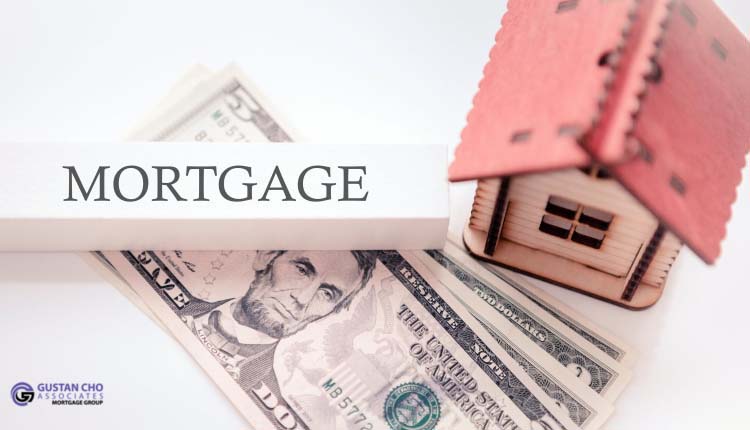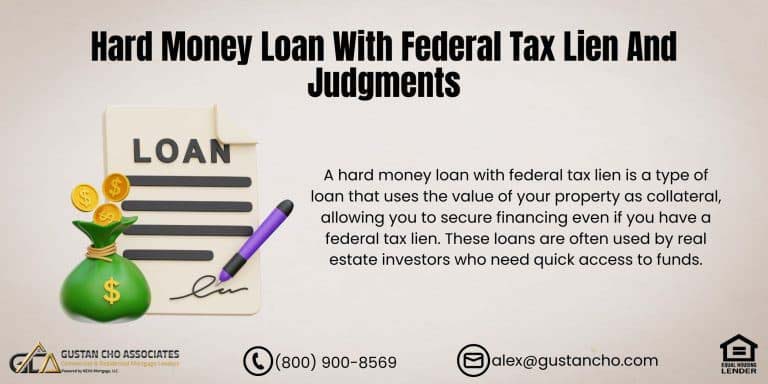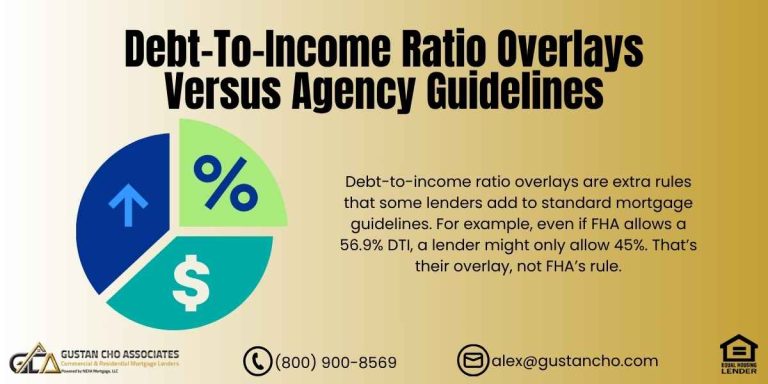This guide covers understanding the basics on what is a mortgage. We will cover and discuss the meaning of what is a mortgage. Unless you are thinking about buying a new home or are a homeowner thinking about refinancing, most Americans really do not care to know the basic understanding of mortgages. Many folks think understanding the concept of a mortgage is complex and do not want to learn the basics. However, the American Dream is to become a homeowner. Most homebuyers do not have $300,000 to $400,000 saved to purchase a home.
Getting a mortgage is most people’s road to homeownership. A mortgage is a loan that is securitized by real estate. A mortgage loan is used to purchase a home.
Homebuyers who do not have the upfront cash to purchase a home need to get a mortgage loan. There are different types of mortgage loans. Each type of mortgage loan has its own lending requirements. Lending requirements include the down payment requirement, credit guidelines, debt to income ratio requirements, and other factors for a lender to approve and fund a mortgage loan. In the following paragraphs, we will cover understanding what is a mortgage for homebuyers and homeowners.
The Main Purpose Of Having A Mortgage
The majority of homebuyers will need a mortgage. If you want to become a homeowner but only have a small amount of money saved and cannot pay for the home purchase in full, you will need a mortgage. Even if you had the money to purchase a home, you may not want to tie up all that cash in a home purchase. Your cash savings can be used for other purposes such as investments, working capital, or to get the best return on your money. Professional real estate investors will only put enough money down and get a mortgage so the property cash flows. Even though real estate investors have a large amount of cash, they only put a certain amount down as a down payment and finance the rest with a mortgage. The reason is so they can use the cash to purchase other investment properties.
New to Mortgages? Start With the Basics Today
If terms like principal, interest, escrow, and amortization confuse you, you’re not alone
How Can I Get a Mortgage
If you have decided to purchase a home, the first step to take is to qualify for a mortgage. You need to contact a mortgage company. There are different types of loan programs. Not all lenders have the same mortgage eligibility requirements and guidelines. Before applying to any mortgage company, do a self-analysis of yourself.
If you have perfect credit, a large down payment, great income, little to no debt, outstanding payment history for years, then you can qualify at any bank, credit union, or mortgage company.
If you have lower credit scores, higher debt to income ratios, outstanding collections and/or charged-off accounts, prior bankruptcy, and/or foreclosure, then you need to research a lender with no lender overlays like Gustan Cho Associates. Gustan Cho Associates is one of the very few national mortgage companies licensed in multiple states with no lender overlays on government loans.
Understanding Agency Guidelines Versus Lender Overlays
Lenders will require all borrowers to meet the minimum agency guidelines of FHA, VA, USDA, Fannie Mae, Freddie Mac. However, lenders can have higher lending requirements and guidelines of their own which are called lender overlays. Lenders like Gustan Cho Associates has zero lender overlays. Gustan Cho Associates can help borrowers with prior bad credit, lower credit scores, high DTI, recent late payments, and other derogatory credit. Gustan Cho Associates can do loans other lenders cannot.
Lenders will understand borrowers having prior bad credit, bankruptcy, foreclosure, deed in lieu of foreclosure, short sale. All lenders will require rebuilt and reestablished credit after a significant economic or financial event.
All mortgage programs have their own agency mortgage guidelines. All lenders can have their own lending guidelines called lender overlays. Generally, lenders want to see the borrower has the ability to repay the new mortgage and housing payments without any stress. Lenders want to see stable income and employment, stable income for the next three years, proven timely payment history for the past 24 months, a minimum credit score, and lower debt to income ratios.
The Difference Between a Mortgage Versus Consumer Loan
Lending institutions or creditors approve and fund loans. Mortgage companies, financial institutions, or credit will process and underwrite a loan applicant’s credit, income, payment history, and purpose for the loan. Once the lending institution deems the applicant qualified, they will fund the money in full to the applicant or authorized payee. The payment is normally in one lump sum.
Once the funds are disbursed, the loan applicant is responsible and liable to make amortized monthly payments to the lending institution. There are different types of loans. There are unsecured and secured loans.
Unsecured loans are loans a lending institution will approve and fund based on the credit profile and merits of the loan applicant. Secured loans are loans that are secured by collateral. Auto and equipment loans are common secured loans. If the borrower of the secured loan defaults on their secured loan, the lending institution will repossess the collateral.
Understanding The Difference Between Secured Versus Unsecured Loans
Mortgages are examples of secured loans. If the homeowner defaults on their mortgage payments, the lender can start foreclosure proceedings and foreclose on the home. Mortgages are loans. However, a mortgage relates to a loan a lender approves and funds collateralized by real estate only. You cannot get a mortgage on a car, airplane, RV, or other assets. You can only get a mortgage if you are financing a home or other real estate. Mortgages are a type of loan but not all loans are mortgages. Most homebuyers need to obtain a mortgage on their home purchase.
The homebuyer will put a certain amount of money for the down payment and the lender will finance the bulk of the money. The financing of the lender funds on behalf of the homeowner is called a mortgage.
A mortgage has a lien on the property. If the borrower defaults on their mortgage, the lender will take action to repossess the home through the foreclosure process. Foreclosure is a legal process of taking possession of a home due to default by the lender. A homeowner does not fully own their home until the mortgage is paid in full. Most mortgages are 30-year fixed-rate mortgages.
Ready to Go From “What Is a Mortgage?” to “I’m Pre-Approved”
Once you understand how a mortgage works, the next step is seeing what you qualify for
Understanding What is a Mortgage and How The Concept Works
All mortgages are loans but not all loans are mortgages. A mortgage is a type of loan borrowers can use to purchase real estate. There are different types of mortgages. However, one thing in common all mortgages have is that it is secured by real estate. A home mortgage is secured by a house.
Commercial loans are secured by commercial real estate such as multi-family apartment complexes, warehouse properties, office buildings, or other commercial (non-residential) real estate.
A mortgage is a written agreement between the lending institution and a borrower. make money by charging interest on mortgages. Included in the mortgage docs is a promissory note also referred to as the mortgage note. The terms and agreement of the repayment of the mortgage is in the mortgage. Included in the mortgage note are the term and period of the loan, interest rate, amount borrowed, and total amount paid in interest by the end of the loan term. Once the home mortgage is paid in full, the mortgage note is released to the borrower.
How Lenders Make Money on Mortgages
Lenders make money on mortgages by charging interest on the loan balance. Mortgage lenders are financial institutions that will lend homebuyers money so they can purchase their homes. Banks, credit unions, mortgage brokers, mortgage bankers are all different types of lenders.
Once the borrower meets all lending requirements and guidelines, a loan officer will issue a pre-approval letter up to a certain loan amount.
Lenders will take the mortgage applicant’s application and will review the borrower’s credit profile and determine their eligibility. Not all borrowers will get the same interest rate. Lenders will charge higher interest rates on higher-risk borrowers, therefore will make more money. Interest rates are determined by the current market rates and the borrower’s credit risk.
Factors Determining Mortgage Rates
The higher the risk by the lender the higher the interest rates. The down payment the homebuyer puts down means less risk for the lender: The reason why a larger down payment means less risk for the lender is because the borrower has skin in the game. The larger the down payment, the less the risk the lender has. A borrower with a large down payment will do everything possible not to foreclose and do everything not to default on their mortgage if things go wrong.
What Are Escrow Accounts Held By Lenders
A lender will charge a slightly lower mortgage rate for borrowers who have escrow accounts. Escrows are set up by the lender. Borrowers with escrow account pay into the escrow account every month with their monthly mortgage payment. The lender collects amortized funds for taxes and insurance every month with the principal and interest payments. When property taxes or insurance premiums are due, the lender pays the County Assessors Office and the insurance company. The amount due for the escrow account may vary year to year. It can be higher or lower depending on the changes in property taxes and hazard insurance.
First-Time Homebuyer? Let’s Start at Square One
We’ll explain what a mortgage is, how payments work, and what lenders look for—without the confusing jargon
Loan Level Pricing Adjustments and How Lenders Determine Rates
Lenders have several factors they go by in determining each borrower’s credit risk. The higher the risk, the higher the rewards. So what this means is the rewards to lenders are charging a higher interest rate. Prime borrowers get the lowest interest rates.
The definition of prime borrowers are consumers with over 760 credit scores, 20% down payment, debt to income ratios lower than 41% DTI.
The mortgage loan amount is determined by your debt-to-income ratios. Most home loans are 30-year fixed-rate mortgages. The borrower is responsible to pay monthly mortgage payments that consist of principal and interest. During the early years of the mortgage term, the borrower’s interest portion will be substantially higher than the principal portion. As time passes, more of your monthly mortgage payment will be applied towards paying down the principal home mortgage loan balance.
What is a Mortgage: The Types of Mortgages
Now let’s talk about the various types of mortgages in today’s booming housing market. There are three government loan programs: FHA, VA, USDA. Conventional loans need to conform to Fannie Mae and/or Freddie Mac Agency Mortgage Guidelines. Conventional loans are also referred to as conforming loans. Other loan programs include non-QM loans. We will briefly talk about the individual mortgage loan programs and who can benefit from each of the loan programs in today’s market. Gustan Cho Associates have no lender overlays on government and conventional loans and offers non-QM and alternative finance mortgage programs.
Government-Backed Home Mortgages
There are three government-backed mortgage programs: FHA, VA, USDA. FHA, VA, USDA does not originate and fund government loans. Private mortgage companies and lenders originate, process, underwrite, and close government loans. Lenders are more than eager to originate and fund government loans with little or no down payment at competitive mortgage rates due to the government guarantee.
In the event, if the borrower default or forecloses on a government loan, the government agency will partially guarantee the loss taken by the lender.
This holds true as long as the lender has followed all of the government loan agency guidelines. VA and USDA loans do not require any down payment. Lenders offer 100% financing on VA and USDA loans. HUD, the parent of FHA, allows borrowers with credit scores as low as 500 FICO to qualify for FHA loans. Government loans are for primary-owner occupant home financing only. You cannot finance second homes and/or investment properties with government loans.
Fannie Mae and Freddie Mac Guidelines on Conventional Loans
Conventional loans are often referred to as conforming loans. Conventional loans need to conform to Fannie Mae and Freddie Mac Agency Guidelines in order for lenders to be able to sell the loans they fund on the secondary mortgage bond market. Lenders need to sell they fund on the secondary market so they can originate and fund more loans.
Lenders use their warehouse line of credit to fund loans. The warehouse line of credit needs to be paid down in order for lenders to be able to make more loans.
Fannie Mae and Freddie Mac are the two government-sponsored enterprises in charge of liquidity in the mortgage markets. The two mortgage giants will not purchase any loans that do not conform to their agency guidelines. Buyers of second homes and investment properties can get financing with conventional loans.
What is a Mortgage: Non-QM and Alternative Mortgages
Non-QM mortgages are non-conforming loans. It benefits homebuyers who cannot meet government or conventional mortgage guidelines. Gustan Cho Associates various non-QM mortgage programs. For example, we offer one day out of bankruptcy or foreclosure non-QM mortgages. 12-month bank statement loans are very popular for self-employed borrowers. No income tax returns are required on our bank statement mortgage program. Other popular non-QM loan programs include fix and flip loans, asset-depletion loan programs, and P & L only non-QM loans. Non-QM loans are becoming more popular as time passes.
Turn Mortgage Jargon Into Something You Actually Understand
You don’t need to be a finance expert to buy a home—you just need clear guidance











